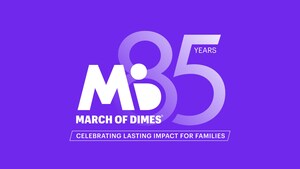New survey finds gaps in Americans' knowledge about the Zika virus, but significant support for federal funding to prevent the spread of the virus
Following the first cases of locally transmitted virus in Florida, 95 percent of Americans say they have heard about Zika and concern has increased since March
WHITE PLAINS, N.Y., Sept. 6, 2016 /PRNewswire-USNewswire/ -- Fewer than 1 in 4 Americans are very confident in the federal government being able to respond to a Zika virus outbreak in the United States or abroad, according to a new study from the March of Dimes and NORC at the University of Chicago. Following the failure of an emergency funding bill to pass in Congress, the survey finds growing concern among Americans about the Zika virus and strong support for federal funding into Zika research.
"This new survey shows clearly that Americans believe that Congress needs to step up and do more to combat Zika," said Dr. Jennifer L. Howse, president of the March of Dimes. "At the same time, many Americans, particularly those in their childbearing years, still lack basic information about how Zika can be spread and how to protect themselves. A coordinated, national effort is necessary to educate individuals and families about their risk, and to fund aggressive efforts to prevent, diagnose and treat Zika as quickly as possible."
Public knowledge of Zika has changed little since NORC last measured awareness in March, and Americans continue to have a mixed understanding of the virus. More than 9 in 10 Americans correctly state that a person can be infected if bitten by a mosquito carrying the virus and 8 in 10 are aware that Zika is linked to birth defects in babies born to infected mothers. Fewer know Zika can be spread through sex (58 percent) and younger Americans ages 18 – 40 still have key gaps in awareness, including a lack of knowledge around recommendations to delay pregnancy if potentially exposed to the virus.
"While most Americans have a general understanding of the Zika virus, too many people are not yet knowledgeable about the nuanced issues with the virus," said Caitlin Oppenheimer, senior vice president for public health research at NORC at the University of Chicago. "Our survey shows that people are getting Zika information from a variety of sources, but only some of which they trust. This information gap reinforces the need for a strong public health infrastructure with the ability to disseminate critical information to the public in a timely way."
The full report is available at: http://www.norc.org/PDFs/MarchOfDimes/Report_March_of_Dimes_NORC_Zika_Poll_090616.pdf
The topline with complete question wordings is available at: http://www.norc.org/PDFs/MarchOfDimes/Topline_March_of_Dimes_NORC_Zika_Poll_090616.pdf
Key findings from the poll include:
- Sixty-one percent of Americans are moderately worried that the country will see a large number of Zika infections in the next year, up from 52 percent in March.
- Three-quarters of Americans support increased federal funding into research to prevent the spread of Zika, and majorities support mosquito control policies.
- Seventy-seven percent of adults recognize the need to delay pregnancy when a woman lives in a Zika-affected area, but awareness is lower for the age group most at risk, 18-40 year olds (68 percent).
- Most Americans (85 percent) have received information about Zika from television or radio news, but few (39 percent) trust that source.
- Americans are most trusting of Zika information from the Centers for Disease Control and Prevention, their personal doctor, and their state or local public health departments, but few have received information from these sources.
- Thirteen percent of adults age 18-40 say they have abstained from sex to prevent pregnancy in light of Zika, while 24 percent report they have used condoms or other forms of birth control to prevent sexual transmission.
Survey Methodology
The nationally representative survey was funded by the March of Dimes and conducted by NORC at the University of Chicago, using the AmeriSpeak Panel®, which is NORC's probability-based panel and is designed to be representative of the U.S. household population. Panel members were randomly drawn from the AmeriSpeak Panel, and 2,379 completed the survey. The survey included oversamples of men and women age 18-40 for a total of 646 interviews with men age 18-40 and 1,108 interviews with women age 18-40. Respondents without internet access and those who prefer to complete surveys by phone were interviewed by trained NORC interviewers. The overall margin of sampling error is +/ 3.2 percentage points at the 95 percent confidence level, including the design effect. The margin of sampling error is higher for subgroups.
About the March of Dimes
The March of Dimes is the leading nonprofit organization for pregnancy and baby health. For more than 75 years, moms and babies have benefited from March of Dimes research, education, vaccines, and breakthroughs. For the latest resources and health information, visit our websites marchofdimes.org and nacersano.org. If you have been affected by prematurity or birth defects, visit our shareyourstory.org community to find comfort and support. For detailed national, state and local perinatal statistics, visit persistats.org. You can also find us on Facebook or follow us on Twitter.
About NORC at the University of Chicago
NORC at the University of Chicago is an independent research institution that delivers reliable data and rigorous analysis to guide critical programmatic, business, and policy decisions. Since 1941, NORC has conducted groundbreaking studies, created and applied innovative methods and tools, and advanced principles of scientific integrity and collaboration. Today, government, corporate, and nonprofit clients around the world partner with NORC to transform increasingly complex information into useful knowledge. www.norc.org
Logo - http://photos.prnewswire.com/prnh/20150409/197662LOGO
Logo - http://photos.prnewswire.com/prnh/20160903/404007LOGO
SOURCE March of Dimes
Related Links
WANT YOUR COMPANY'S NEWS FEATURED ON PRNEWSWIRE.COM?
Newsrooms &
Influencers
Digital Media
Outlets
Journalists
Opted In





Share this article